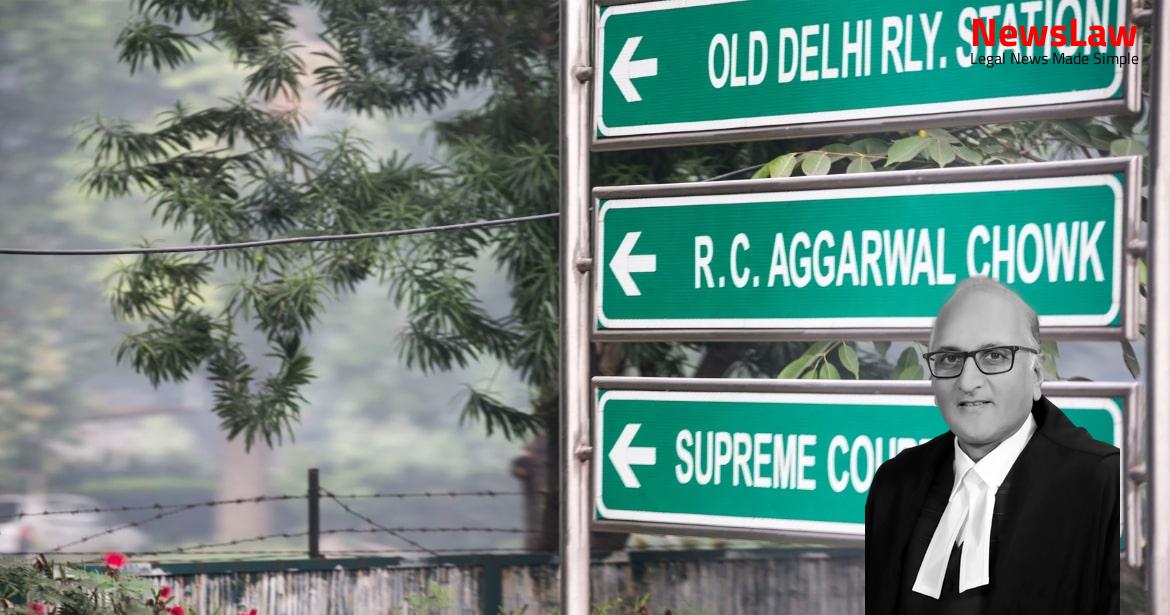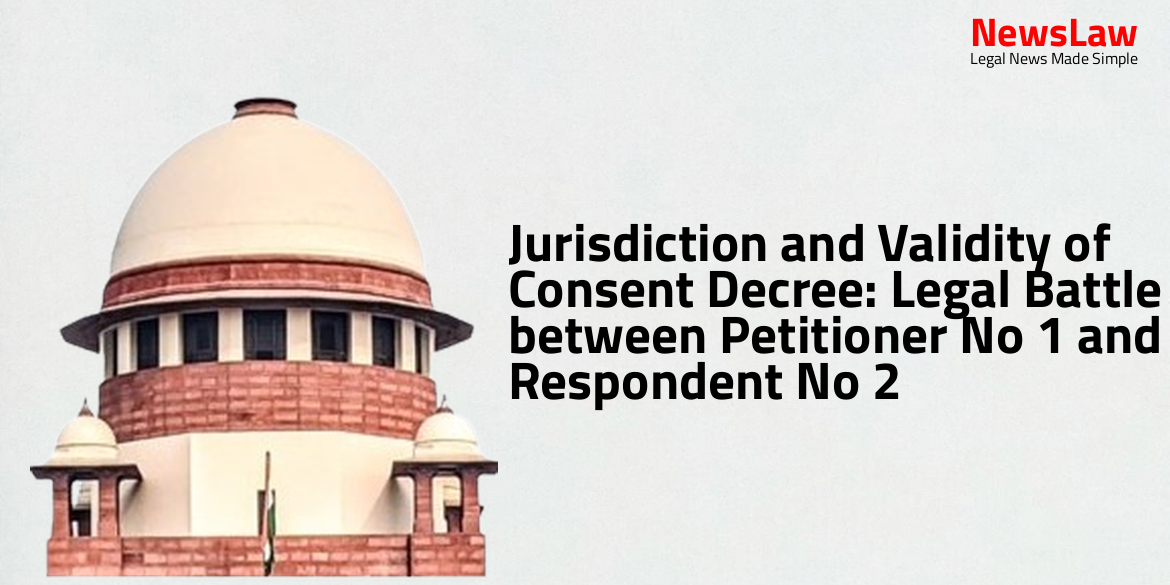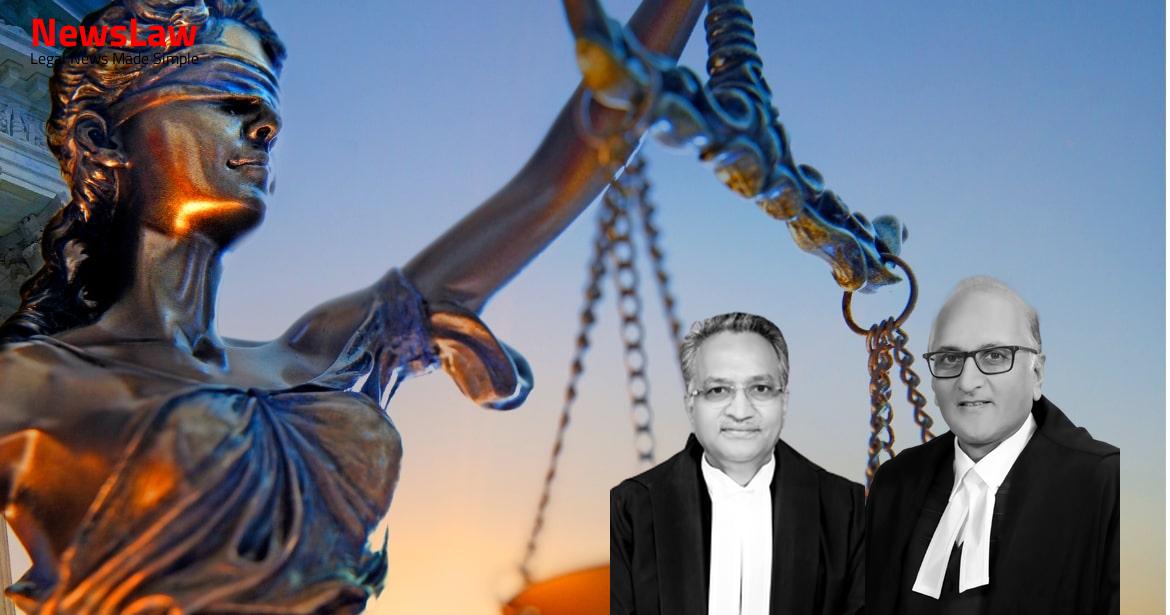Explore the detailed legal analysis by the court regarding interest on delayed refunds in recent cases. The court’s examination of statutory provisions, previous judgments, and arguments presented sheds light on the complexities of refund processes in tax law. Dive into the nuances of interest rates, statutory provisions, and equitable considerations in the realm of delayed refunds. Stay tuned for a comprehensive overview of the legal intricacies involved in this crucial aspect of fiscal jurisprudence.
Facts
- M/s. Willowood Chemicals Pvt. Ltd. filed Special Civil Application No.18591 of 2018 seeking compensation for delayed payment of refunds.
- The petitioner received the refund of integrated tax paid on export of goods after a substantial delay.
- Notifications No.13/2017- Central Tax and No.6/2017 – integrated tax dated 28.06.2017 fixed the rate of interest for delayed payments.
- Rule 2 of the Integrated Goods and Services Tax Rules, 2017 mentions the application of Central Goods and Services Tax Rules, 2017 in relation to Integrated tax.
- The special civil application requested appropriate compensation for the delays.
- Copies of the notifications mentioned in the petition are enclosed as Annexure & and Annexure B.
Also Read: Balancing Power and Transparency: Electoral Bonds Struck Down, Disclosure Mandated
Issue
- The petitioner sought a writ of mandamus or any appropriate writ for directions to the Respondents for compensation and interest for delays in refund processing.
- The refunds to the petitioner showed delays ranging from 94 to 290 days.
- The specific question raised was regarding the amount and duration for which interest is payable on the delayed refunds.
- Clarification was sought on whether interest is payable only on Rs. 10,000 and until the original assessment date or the revised assessment date.
Also Read: Recall of Resolution Plan Approval: Legal Analysis
Arguments
- In both petitions, it was argued that inaction causing delay in refunding amounts was considered arbitrary.
- The petitioners claimed that the delay affected their business operations and sought compensation and interest for the delay.
- The Revenue’s counsel opposed these claims.
- The High Court examined the arguments, referred to relevant statutory provisions, and cited previous court decisions.
- The judgments of KT Plantation Pvt. Ltd. v. State of Karnataka, Sandvik Asia Ltd. v. Commissioner of Income Tax-I Pune, and Commissioner of Income Tax, Gujarat v. Gujarat Fluoro Chemicals were considered.
- The judgment dated 10.7.2019, which is the subject of the second case, is being challenged.
- Ms. Madhavi Divan, the learned counsel for the respondents argued that the decisions of the Bombay High Court in Krishnakumar and Changdeo cases were not sound.
- The counsel pointed out that these decisions ignored Section 26 of the Act when awarding interest.
- The arguments made by Ms. Divan suggest that the decisions in the aforementioned cases may not be legally sound.
Analysis
- Refund under Section 54 and Section 55 of the CGST Act allows certain entities to claim a refund of tax paid on inward supplies of goods or services.
- The refund application must be filed within six months from the last day of the quarter in which the supply was received.
- The application for refund must be made in the prescribed form and manner.
- There are two options for claiming a refund: either without payment of integrated tax or on payment of integrated tax.
- Refund of unutilized input tax credit can be claimed in certain cases as specified.
- The process for claiming a refund involves specific conditions, safeguards, and procedures.
- Refunds are subject to verification by the proper officer before being credited to the Fund or paid to the applicant.
- Interest may be payable on delayed refunds at the specified rates.
- The Commissioner may withhold refunds in cases where it could adversely affect revenue or due to pending proceedings.
- Certain conditions, such as timely filing of returns and no pass-on of tax burden, apply to claim refunds.
- The provisions of the CGST Act and relevant rules governing refunds must be followed strictly.
- Normally, a petition under Article 226 of the Constitution of India will not be entertained to enforce a civil liability arising out of a breach of a contract or a tort to pay an amount of money due to the claimants with interest.
- Interest could be awarded on belated payment of compensation based on specific circumstances and exceptions.
- Interest may be granted at a rate beyond what is prescribed by the statute as a discretion of the Court, especially in cases not strictly covered by the statute.
- An order for payment of money can be made in a writ proceeding to enforce statutory functions of the State or its officers.
- High Courts have the power to give consequential relief by ordering payment of money realised by the Government without the authority of law during the enforcement of fundamental or statutory rights.
- A petition solely for the refund of money collected illegally is not typically maintainable under Article 226; such claims can usually be pursued through a civil suit.
- There is a distinction between cases where a claimant seeks only a refund and cases where a refund is part of a consequential relief after challenging certain orders or assessments.
- The Court may award interest on delayed payment of compensation in acquisition cases based on equitable grounds, especially when statutes are silent about the rate of interest.
- The decision in Suganmal [AIR 1965 SC 1740] has been explained and distinguished in subsequent cases, providing clarity on the nature of claims for refund or interest.
- Interest may be granted on delayed refunds if it relates to compensation for wrongful retention of funds collected unlawfully by the authorities.
- Interest on delayed refunds is governed by specific statutory provisions.
- Statutory provisions dictate the rate of interest payable on delayed refunds.
- Payment of interest must comply with statutory provisions and specific rates mentioned.
- Inordinate delays in refunds may lead to higher interest rates being awarded.
- Interest on delayed refunds is not a matter of equity but a matter of statutory provisions.
- The rate of interest specified in the statute must be followed unless special circumstances warrant a different rate.
- The court may award interest at a reasonable rate on equitable grounds if the statute is silent about the interest rate.
- The specific provisions of the statute must govern the field when it comes to awarding interest on delayed refunds.
- The court may consider various factors while deciding the rate of interest on compensation.
- The court may direct payment of interest where there has been excessive delay in making refunds.
- Interest rates awarded on delayed refunds may vary depending on the circumstances of each case.
- The High Court was incorrect in awarding interest at a rate exceeding 6 per cent in the cases at hand.
- The matter must be interpreted solely based on the relevant statutory provisions.
- As per Section 56 of the CGST Act, interest should be granted at a rate of 6 per cent.
Decision
- The writ applicants are entitled to 9% per annum interest on the aggregate amount of refund from the date of filing of the GSTR-03.
- The authority concerned is directed to calculate the aggregate refund and the interest amount owed to the writ applicants based on the information provided.
- The interest shall be paid to the writ applicants within two months from the date of receipt of the writ of the order.
- Review Petitions filed by the appellant were dismissed in both cases.
- Original writ petitioners are entitled to interest at the rate of 6% per annum on refund amounts.
- The amounts along with 6% interest have already been paid to the writ petitioners, concluding the matter.
- The Civil Appeals are allowed without any costs.
Case Title: UNION OF INDIA Vs. M/S WILLOWOOD CHEMICALS PVT. LTD. (2022 INSC 430)
Case Number: C.A. No.-002995-002996 / 2022



